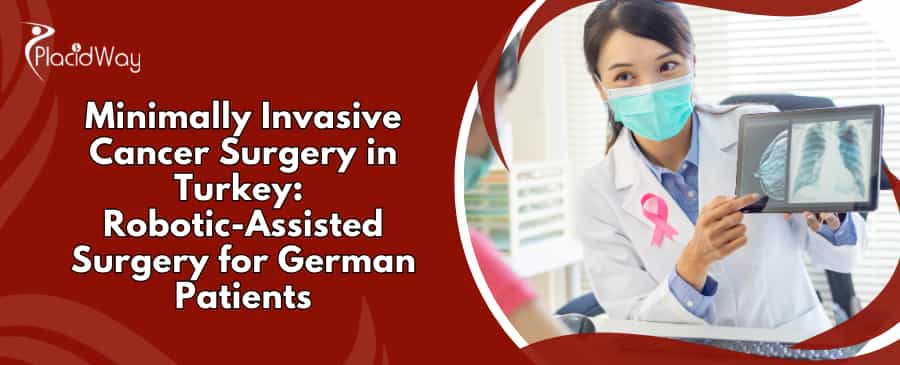
For German patients seeking advanced yet affordable cancer care, Turkey is a leading destination for robotic-assisted surgery. With state-of-the-art technology like the da Vinci system, shorter recovery times, and expert surgeons, Turkish hospitals deliver world-class treatment at a fraction of Western Europe’s cost.
Key Takeaways
-
German patients can achieve substantial savings, often between 40% and 60%, on robotic-assisted cancer surgeries in Turkey compared to the costs in Germany, without compromising on the quality of care.
-
Medical packages for international patients are typically all-inclusive, covering the surgical procedure, hospital stay, pre-operative diagnostics, anesthesia, surgeon's fees, airport transfers, and dedicated translator services.
-
Turkey's leading hospitals are JCI-accredited, ensuring they adhere to the highest international standards of patient safety and care, and utilize advanced robotic technology like the da Vinci Xi system.
-
Robotic Prostatectomy in Turkey: Costs range from approximately €12,000 to €18,000, offering a significant saving compared to the €25,000 to €40,000 average in Germany.
-
Robotic Hysterectomy in Turkey: Prices typically fall between €10,000 and €15,000, whereas in Germany, the same procedure can cost from €20,000 to €35,000.
-
Robotic Nephrectomy (Kidney Surgery) in Turkey: The average cost is between €11,000 and €17,000, a considerable reduction from the German average of €22,000 to €38,000.
Understanding Robotic-Assisted Cancer Surgery
Robotic-assisted surgery is an advanced form of minimally invasive surgery where surgeons use a sophisticated robotic system to perform complex procedures with greater precision and control than is possible with traditional techniques. This method is not automated; rather, the surgeon is in complete control, with the robotic arms mimicking the surgeon's hand movements in real time.
How Does Robotic Surgery Work?
The da Vinci Surgical System, widely used in Turkish hospitals, features a surgeon’s console, robotic arms, and a 3D vision system. Surgeons control the arms from the console, enabling highly precise movements through small incisions, with greater flexibility than the human hand.
Key Differences from Traditional and Laparoscopic Surgery
Compared to traditional open surgery, which requires a large incision, robotic surgery uses incisions that are typically only 1-2 centimeters. While standard laparoscopy also uses small incisions, robotic surgery provides surgeons with enhanced 3D visualization, superior dexterity, and greater precision, which is particularly crucial in the delicate process of removing cancerous tissue while preserving surrounding healthy nerves and organs.
Why Are German Patients Choosing Turkey for Robotic Cancer Surgery?
German patients are increasingly turning to Turkey for robotic cancer surgery due to a powerful combination of affordability, immediate access to advanced medical technology, highly skilled surgeons, and internationally accredited healthcare facilities. This trend reflects a growing confidence in the Turkish healthcare system's ability to deliver outcomes that are on par with, or even exceed, the standards of care in Western Europe.
Significant Cost Advantages
The primary driver for many is the substantial cost savings. Procedures in Turkey are often a fraction of the price they would be in Germany, even after factoring in travel and accommodation. This financial relief allows patients to access cutting-edge treatments without the overwhelming monetary burden.
Access to Advanced Technology and Experienced Surgeons
Turkey has made significant investments in its medical infrastructure. Leading Turkish hospitals are equipped with the latest generation of robotic surgical systems. Moreover, Turkish surgeons are often trained in Europe and the United States and have extensive experience, performing a high volume of robotic procedures annually.
Reduced Waiting Times
In Germany, waiting lists for specialized surgeries can be lengthy. In contrast, the Turkish healthcare system is known for its efficiency, allowing international patients to schedule consultations and surgeries with minimal delay, which can be critical when dealing with a cancer diagnosis.
High Standards of Care and JCI-Accredited Hospitals
Many of Turkey's top hospitals are accredited by the Joint Commission International (JCI), the gold standard in global healthcare. This accreditation ensures that these facilities adhere to rigorous standards of patient safety, quality of care, and operational excellence. For German patients, this provides a crucial assurance of quality.
.png)
Common Cancers Treated with Robotic Surgery in Turkey
Robotic-assisted surgery is particularly effective for cancers located in hard-to-reach or delicate areas of the body, allowing for precise tumor removal while minimizing damage to surrounding tissues. Turkish surgical oncologists have extensive expertise in a wide range of robotic procedures.
-
Prostate Cancer: Robotic-assisted radical prostatectomy is the gold standard for treating localized prostate cancer. The precision of the robotic arms helps to preserve the delicate nerves responsible for urinary control and erectile function.
-
Kidney Cancer: For kidney tumors, robotic partial nephrectomy allows for the removal of the cancerous portion of the kidney while preserving the healthy remainder, which is crucial for long-term kidney function.
-
Uterine and Cervical Cancer: A robotic hysterectomy for uterine or cervical cancer offers women a less traumatic surgical experience with smaller scars, less pain, and a much faster return to normal activities compared to open surgery.
-
Colon and Rectal Cancer: Robotic surgery for colorectal cancer enables surgeons to navigate the tight spaces of the pelvis with greater ease, facilitating a more precise removal of the tumor and lymph nodes.
-
Throat Cancer: Transoral Robotic Surgery (TORS) allows surgeons to remove cancers of the tonsils and base of the tongue through the mouth, avoiding the need for large external incisions in the neck.
The Benefits and Potential Risks for Patients
While robotic-assisted surgery offers numerous compelling advantages, it is essential for patients to have a balanced understanding of both the benefits and the potential risks associated with any surgical procedure.
Advantages of a Minimally Invasive Approach
-
Less Pain: Smaller incisions result in less post-operative pain and a reduced need for strong pain medication.
-
Minimal Scarring: The small, keyhole incisions lead to significantly smaller and less noticeable scars.
-
Reduced Blood Loss: The precision of the robotic instruments minimizes bleeding during surgery, often eliminating the need for blood transfusions.
-
Shorter Hospital Stay: Patients typically recover faster and can be discharged from the hospital within a few days.
-
Faster Recovery: The combination of these factors allows for a quicker return to daily routines and work.
Understanding the Potential Complications
While generally very safe, robotic surgery carries the same risks inherent in any major surgery, including:
-
Reactions to anesthesia
-
Infection at the incision sites
-
Bleeding
-
Damage to surrounding tissues or organs
-
In rare cases, the need to convert to an open surgical procedure
Expert Insight: "The da Vinci system provides us with a level of precision that is simply not possible with the human hand alone. For cancer patients, this means we can be more effective in removing cancerous tissue while meticulously preserving critical nerves and healthy organs. This translates directly to better outcomes for our patients—less time in the hospital, a faster recovery, and a better quality of life post-surgery. We are seeing a significant increase in patients from Germany who are seeking this advanced level of care."
Are You a Suitable Candidate for Robotic-Assisted Surgery?
Candidacy for robotic-assisted cancer surgery is determined on a case-by-case basis, following a thorough evaluation of the patient's overall health and the specifics of their cancer diagnosis.
A multidisciplinary team of specialists in Turkey will review your medical records to determine the most effective treatment plan. Key factors include:
-
General Health and Fitness: Patients need to be well enough to undergo general anesthesia.
-
Cancer Type, Stage, and Location: The procedure is most effective for localized tumors that have not spread extensively. The size and location of the tumor are also critical considerations.
-
Previous Surgeries: Prior abdominal or pelvic surgeries may sometimes create scar tissue that could complicate a robotic procedure.
Cost of Robotic-Assisted Cancer Surgery: Turkey vs. Germany
One of the most compelling reasons for German patients to consider Turkey is the dramatic difference in the cost of treatment, with savings often reaching up to 60% for complex robotic surgeries.
Below is a comparative table illustrating the average costs for common robotic-assisted cancer surgeries. These prices are estimates and can vary based on the specific hospital and the complexity of the patient's case.
What's Included in a Turkish Medical Package?
To streamline the experience for international patients, Turkish hospitals typically offer comprehensive packages that include:
-
All costs related to the surgical procedure
-
Surgeon, anesthesiologist, and operating room fees
-
Hospital stay in a private room
-
All necessary pre-operative tests and consultations
-
Airport transfers (airport-hotel-hospital)
-
Personal translator services
-
Post-operative medications and follow-up consultation before departure
.png)
Preparing for Your Medical Journey from Germany to Turkey
Organizing a medical trip abroad is a straightforward process when facilitated by a medical tourism provider, who will coordinate every step of the journey for you.
Initial Consultation and Medical Records Transfer
The process begins with an online consultation. You will be asked to provide your medical records, including diagnostic reports, imaging scans (MRI, CT, PET scans), and pathology results. These will be reviewed by the surgical team in Turkey, who will then provide a recommended treatment plan and a detailed cost estimate.
Visa, Flights, and Accommodation Logistics
German citizens can typically enter Turkey for up to 90 days without a visa. Your medical tourism facilitator can assist with booking flights and recommending suitable accommodation near the hospital for you and any accompanying family members.
What to Pack and How to Prepare for Your Stay
Pack comfortable clothing, any personal medications you take regularly, and all necessary travel documents. It's also advisable to bring copies of your medical records. Your patient coordinator will provide a detailed checklist to ensure you are fully prepared.
Did You Know? Istanbul is home to more JCI-accredited hospitals than any other city in the world. This high concentration of top-tier medical facilities underscores Turkey's commitment to global healthcare standards.
Recovery and Aftercare: What to Expect
Your recovery journey is closely monitored by the medical team in Turkey to ensure a safe and smooth transition back to your daily life in Germany.
The Immediate Post-Operative Period in the Hospital
Following the surgery, you will be moved to a recovery room and then to your private hospital room. The nursing staff will manage any post-operative pain and help you to start moving around as soon as it is safe to do so. The length of your hospital stay will depend on the type of surgery but is generally much shorter than with open surgery.
Follow-up Care in Turkey Before You Fly Home
Before you are cleared to fly back to Germany, you will have a final follow-up appointment with your surgeon. They will check on your healing, remove any stitches if necessary, and provide you with a detailed medical report and instructions for your continued recovery.
Continuing Your Recovery Back in Germany
The medical report provided by the Turkish hospital will contain all the necessary information for your local doctor in Germany to oversee the remainder of your recovery. The international patient department of the Turkish hospital will also remain available for any remote consultations or questions you may have.
FAQs: Robotic Cancer Surgery in Turkey for German Patients
Is the quality of robotic surgery in Turkey comparable to Germany?
Yes. Leading Turkish hospitals are JCI-accredited and use the same advanced da Vinci robotic systems found in top German and American hospitals. Surgeons are highly experienced, often with international training, ensuring the quality of care is equivalent.
How much can I realistically save on robotic cancer surgery in Turkey?
German patients can typically expect to save between 40% and 60% on the total cost of the procedure, including all associated medical fees. The savings are significant even after accounting for travel and accommodation.
How is communication with doctors and staff managed?
Top Turkish hospitals have dedicated international patient departments with multilingual staff. A personal translator, often fluent in German, will be assigned to you to facilitate clear communication during all your consultations and throughout your hospital stay.
What does a typical medical package for robotic surgery include?
A standard package usually covers the surgery itself, the surgeon's and anesthesiologist's fees, hospitalization, pre-operative tests, medications during your stay, airport and hospital transfers, and translation services.
How long will I need to stay in Turkey?
The total duration of your stay will depend on the specific surgery and your recovery rate. Generally, patients are advised to plan for a stay of approximately 10 to 14 days, which includes pre-operative consultations, the hospital stay, and a period of initial recovery before being cleared to fly home.
What happens if I have a complication after returning to Germany?
The Turkish hospital will provide a comprehensive medical report for your doctor in Germany. Their international patient department also offers remote follow-up consultations to address any concerns and coordinate with your local healthcare provider if needed.
Your Path to Advanced Cancer Treatment with PlacidWay
Navigating cancer treatment abroad can seem daunting, but you don't have to do it alone. PlacidWay is committed to connecting you with Turkey's leading surgeons and JCI-accredited hospitals for robotic-assisted cancer surgery. We provide personalized support at every step, from your initial medical review to your safe return home. Let us handle the logistics so you can focus on what matters most—your health.
Contact PlacidWay today for a free, no-obligation quote and to learn more about your advanced cancer treatment options in Turkey.


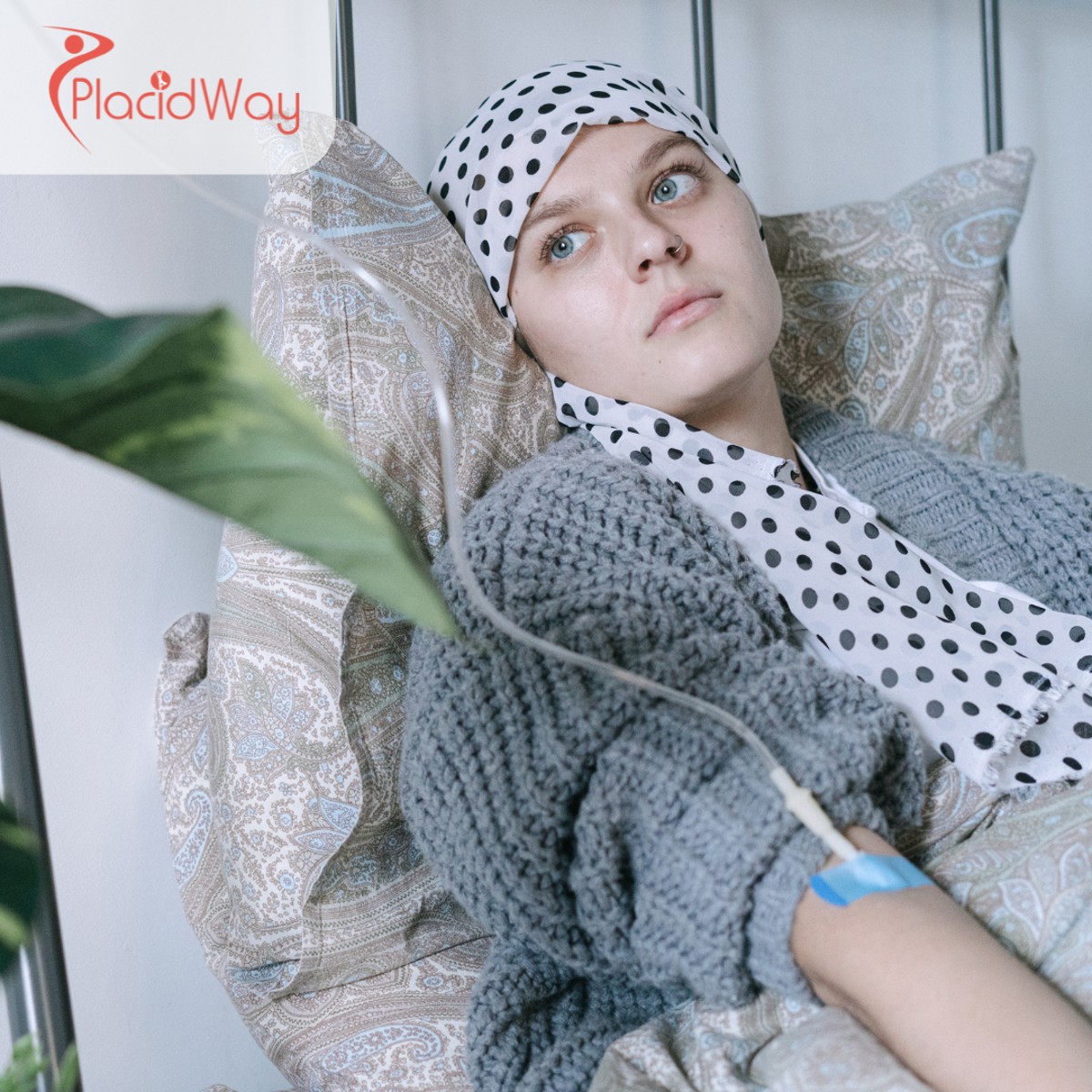


.png)


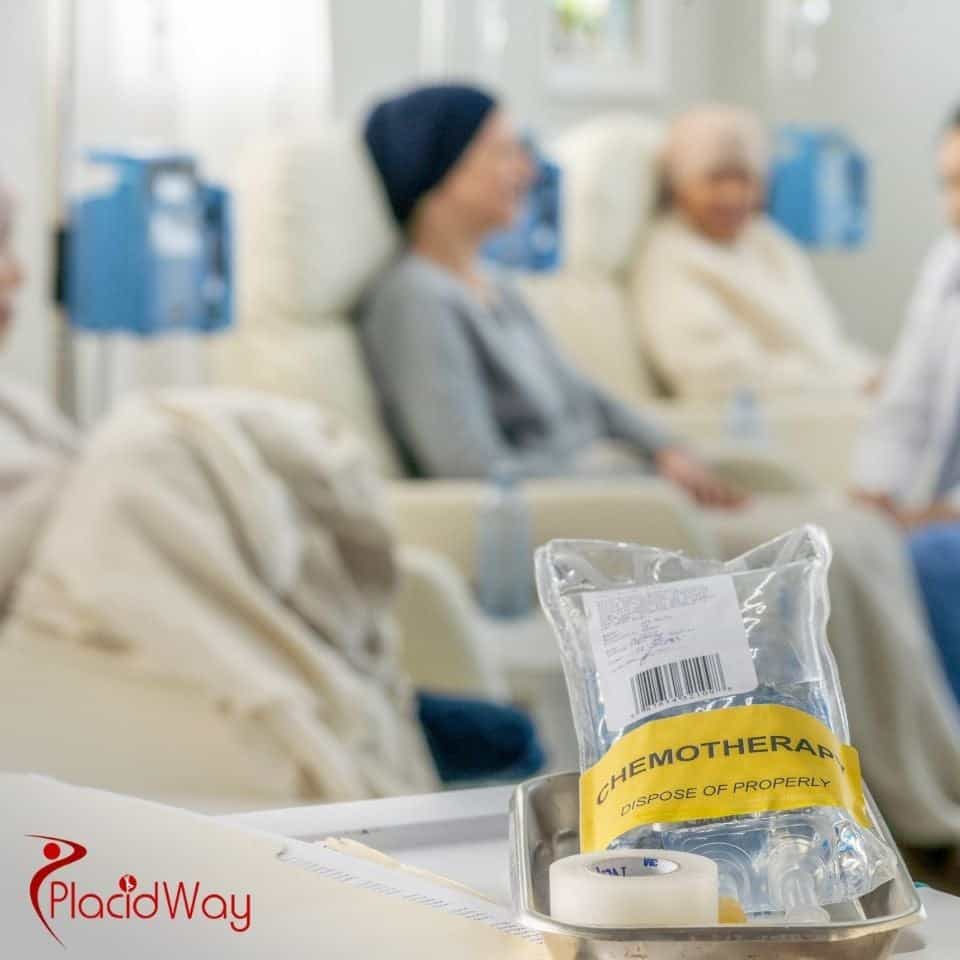

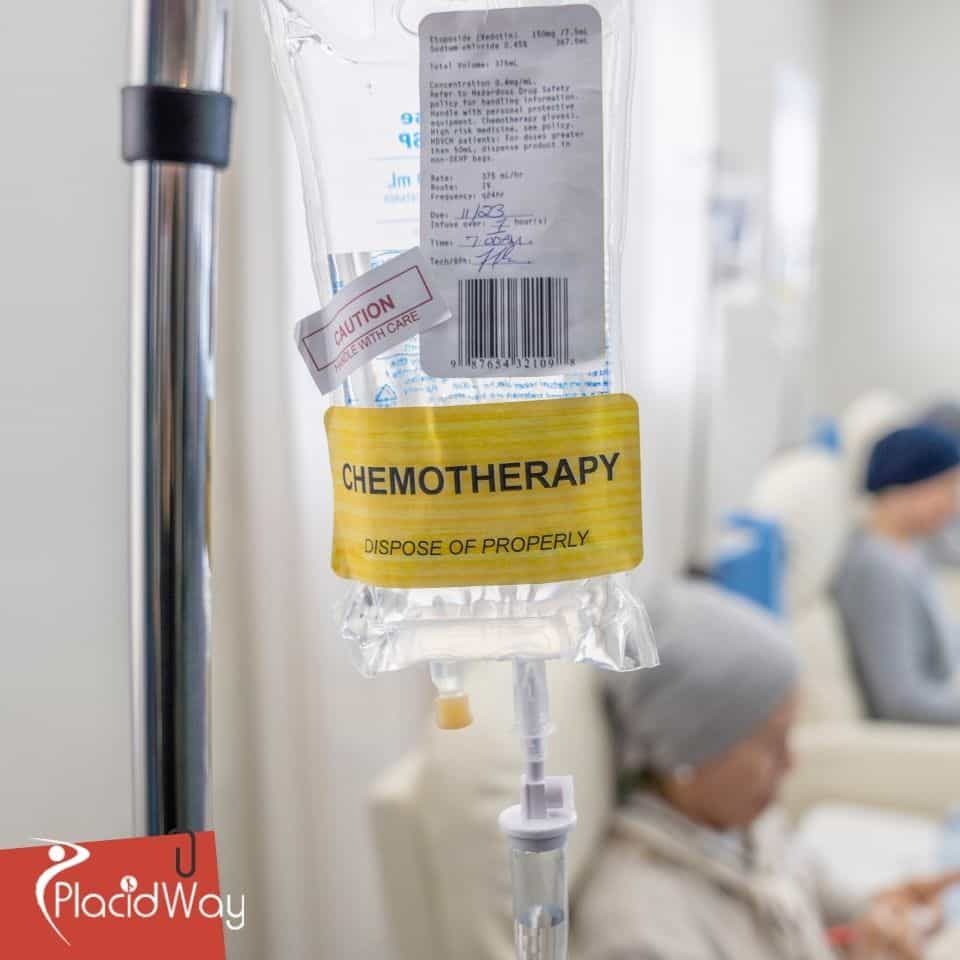



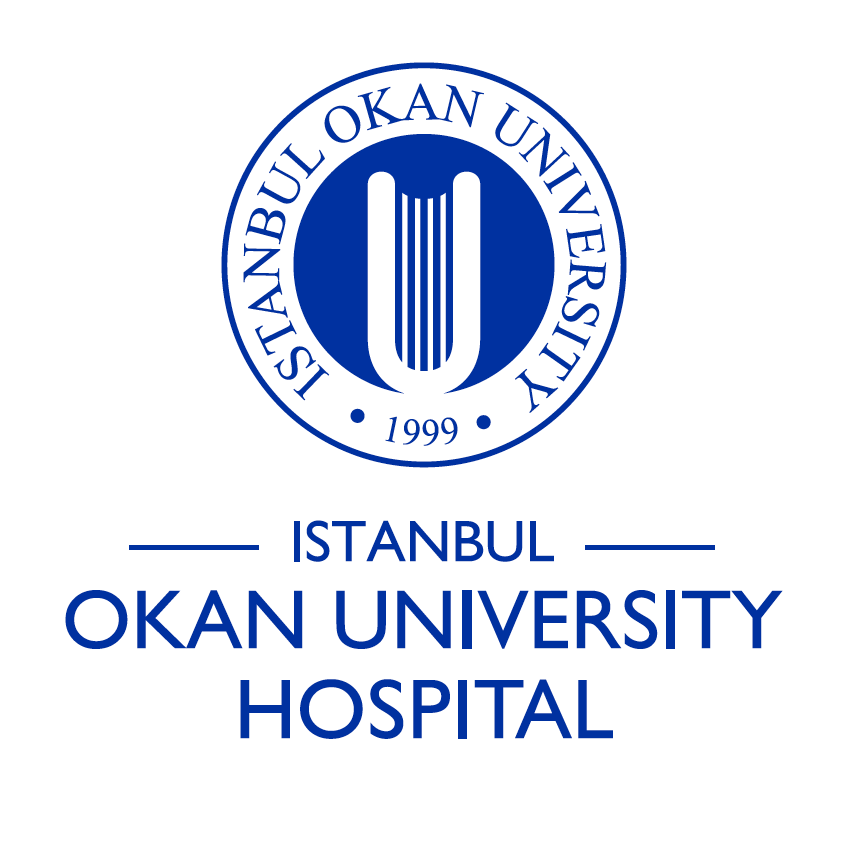


Share this listing